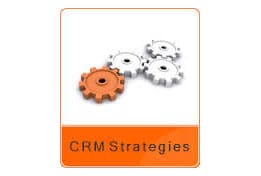Operational Excellence: How to align CRM with your business strategy

Success can be determined by the way in which they deal with their customers. This does not just mean high volume sales and income figures but also how we manage the relationship between the company and the consumer.
Organisational speed and quality are important aspects in gaining positive feedback and ensuring longevity in terms of customer loyalty. To ease the methods in which these delicate operations are dealt with; CRM solutions enable organisations to have significantly more control over customer relations elements.
- Company Size: This applies to both large and small businesses alike as there is no difference when it comes to providing efficient ordering, tracking and data services.
- Client Numbers: have little to do with it as the fundamentals remain the same; a well-run organisation results in more profits.
Below we will discuss ways to facilitate both so that there are no compromises in terms of existing infrastructure.
Clear vision and set goals
With all projects, there needs to be an understanding of what is to be expected from the personnel at hand. In order for effective implementation there must be pre-arranged tasks and targets orchestrated from the goals hoped to be achieved. The term strategy first, software second applies here as there is no point in having the right equipment and tools without the organisation and implementation needed to go along with it.
Understanding the data
Once you have sought out CRM solutions and implemented them into your IT infrastructure, it is important to be able to understand what it is you are working with. Data can unearth market trends and relevant feedback about products and services improvements and forecasting future trends. Ensuring your company has reliable data in the first instance is crucial; as well as the ability to manipulate data to uncover target audiences in relation to specific products which can result in tailored marketing.
Establish performance measure
To ensure there is constant improvements and successful implementation of tools and applications, it is important to have a way in which to measure the performance rates. There is a CRM strategy and information model for this which involves beginning with developing a strategy, followed by value creation, multi-channel integration and information management, subsequent employee engagement and concluding with performance assessment to ensure goals and targets are met in unison.
This will enable management to choose the most beneficial CRM strategy and the correct course for implementation and success.